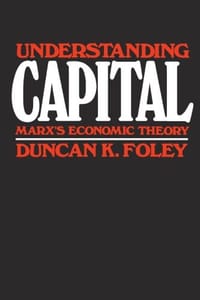"Understanding Capital" is a brilliantly lucid introduction to Marxist economic theory. Duncan Foley builds an understanding of the theory systematically, from first principles through the definition of central concepts to the development of important applications. All of the topics in the three volumes of "Capital" are included, providing the reader with a complete view of Marxist economics. Foley begins with a helpful discussion of philosophical problems readers often encounter in tackling Marx, including questions of epistemology, explanation, prediction, determinism, and dialectics. In an original extension of theory, he develops the often neglected concept of the circuit of capital to analyze Marx's theory of the reproduction of capital. He also takes up central problems in the capitalist economy: equalization of the rates of profit (the "transformation problem"); productive and unproductive labor and the division of surplus value; and the falling rate of profit. He concludes with a discussion of the theory of capitalist crisis and of the relation of Marx's critique of capitalism to his conception of socialism. Through a careful treatment of the theory of money in relation to the labor theory of value, Foley clarifies the relation of prices to value and of Marx's categories of analysis to conventional business and national income accounts, enabling readers to use Marx's theory as a tool for the analysis of practical problems. The text is closely keyed throughout to the relevant chapters in "Capital" and includes suggestions for further reading on the topics discussed.

